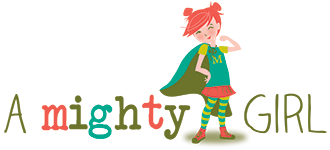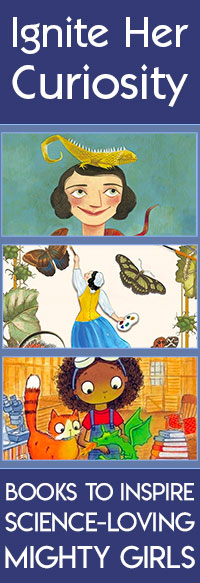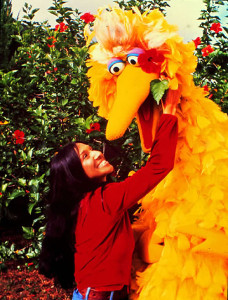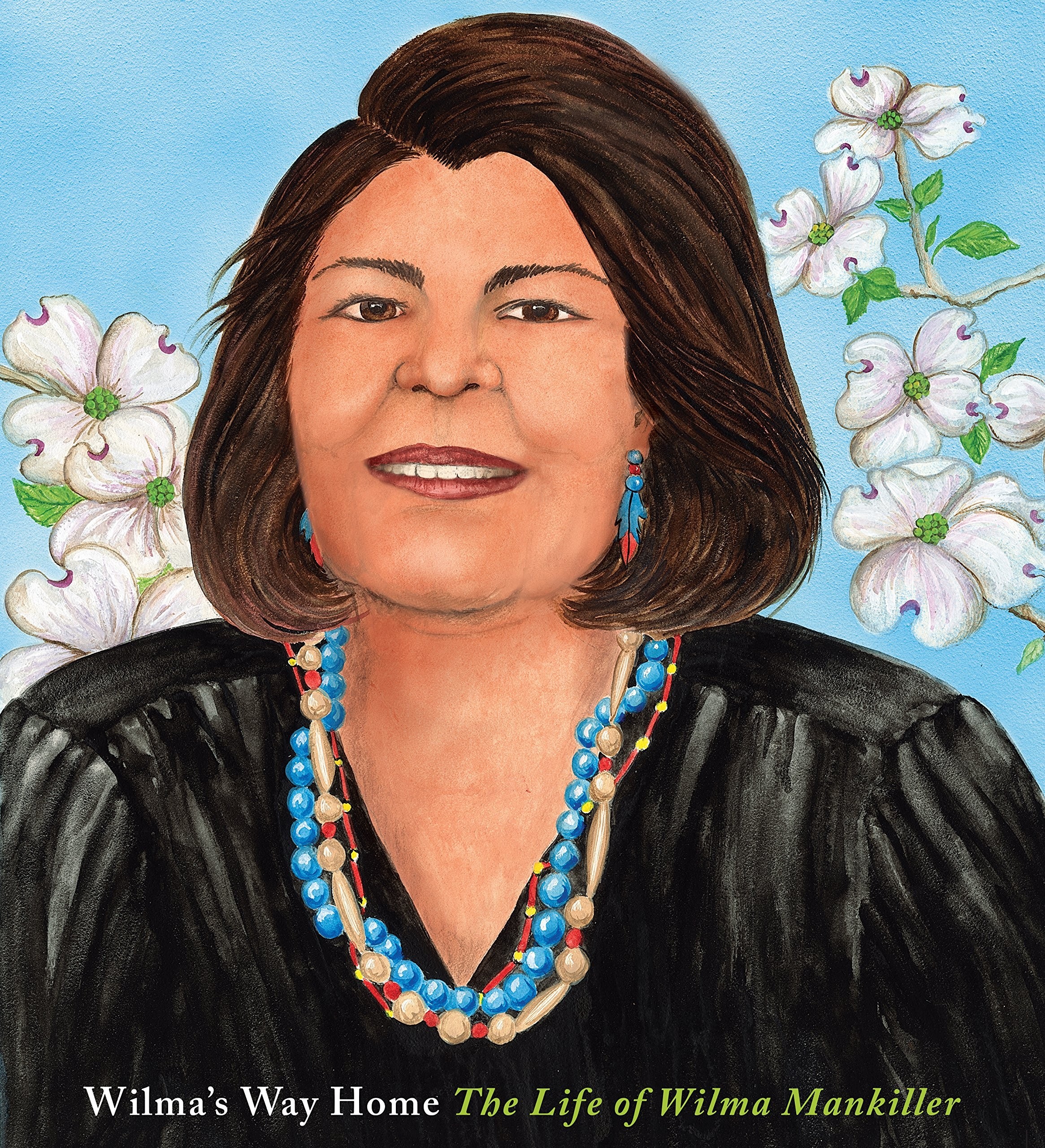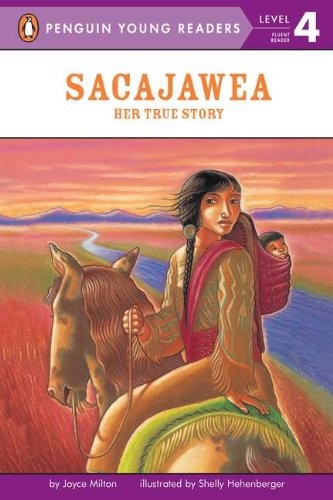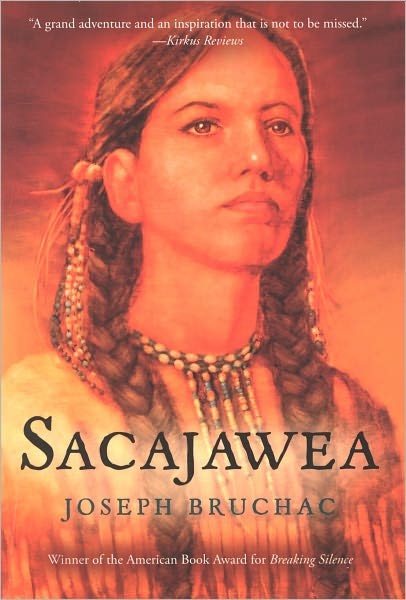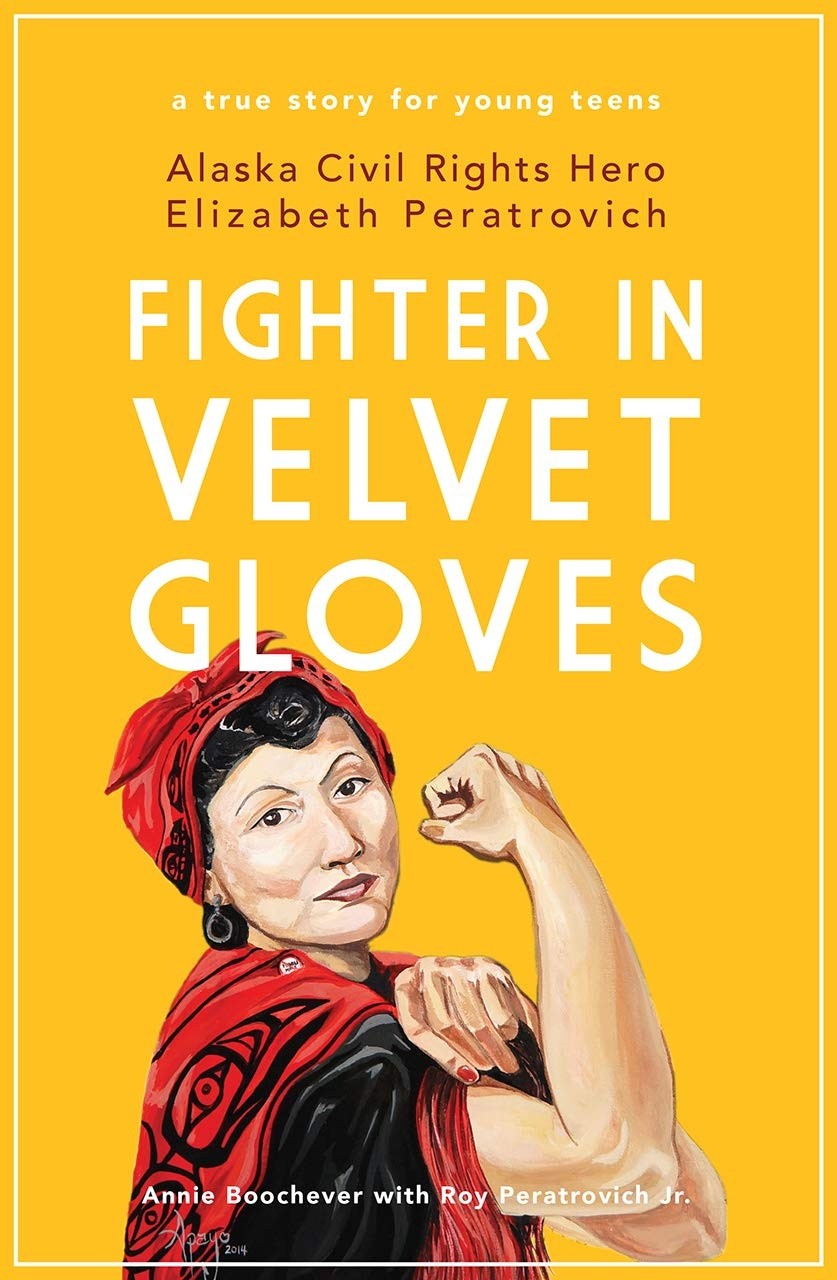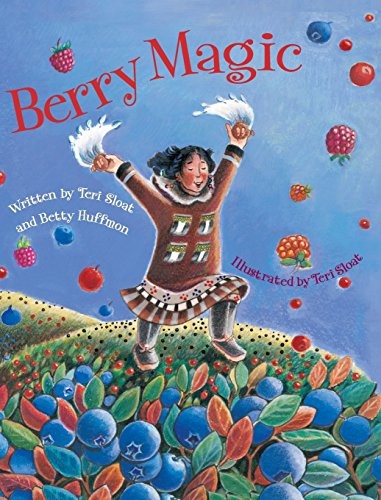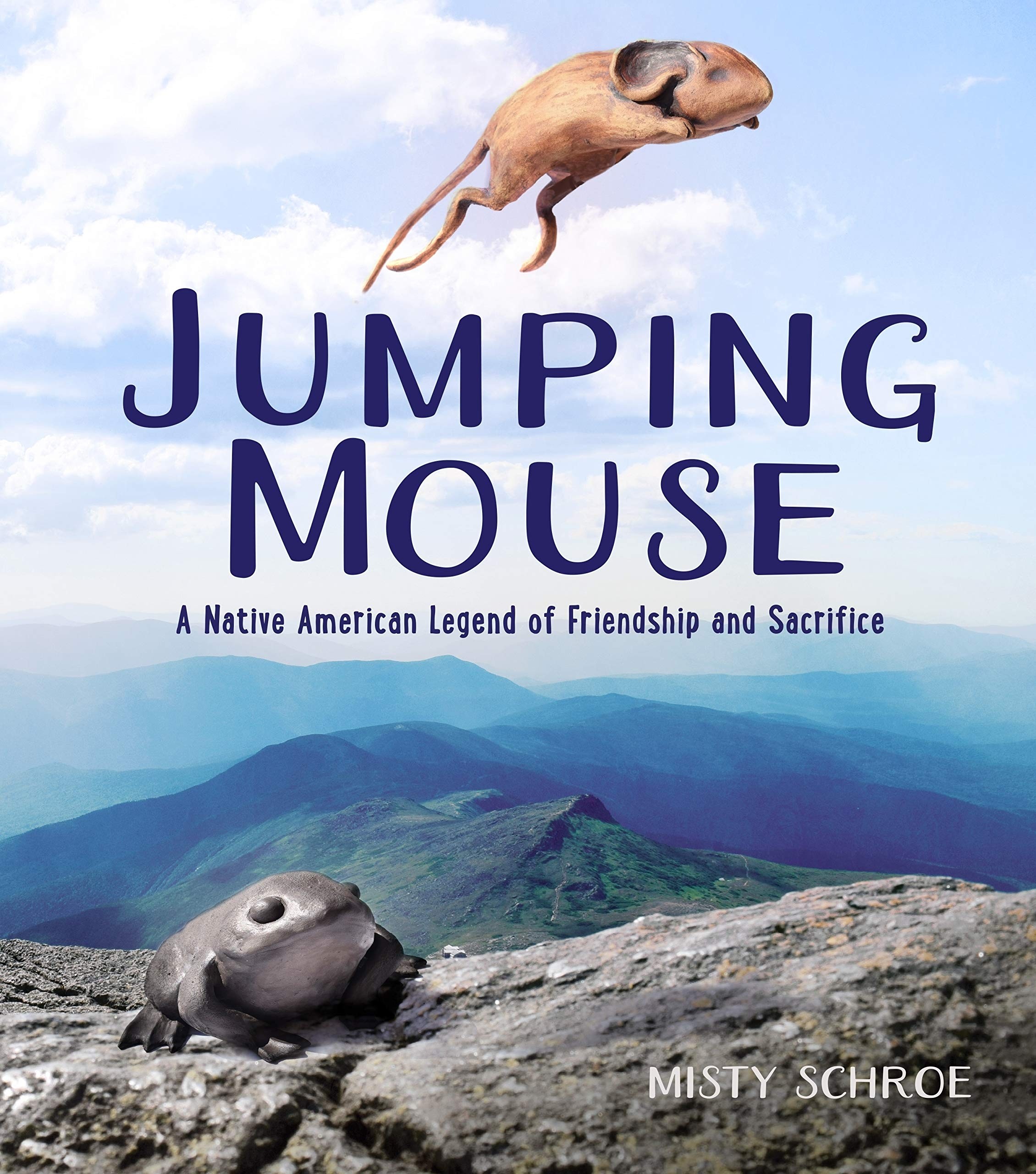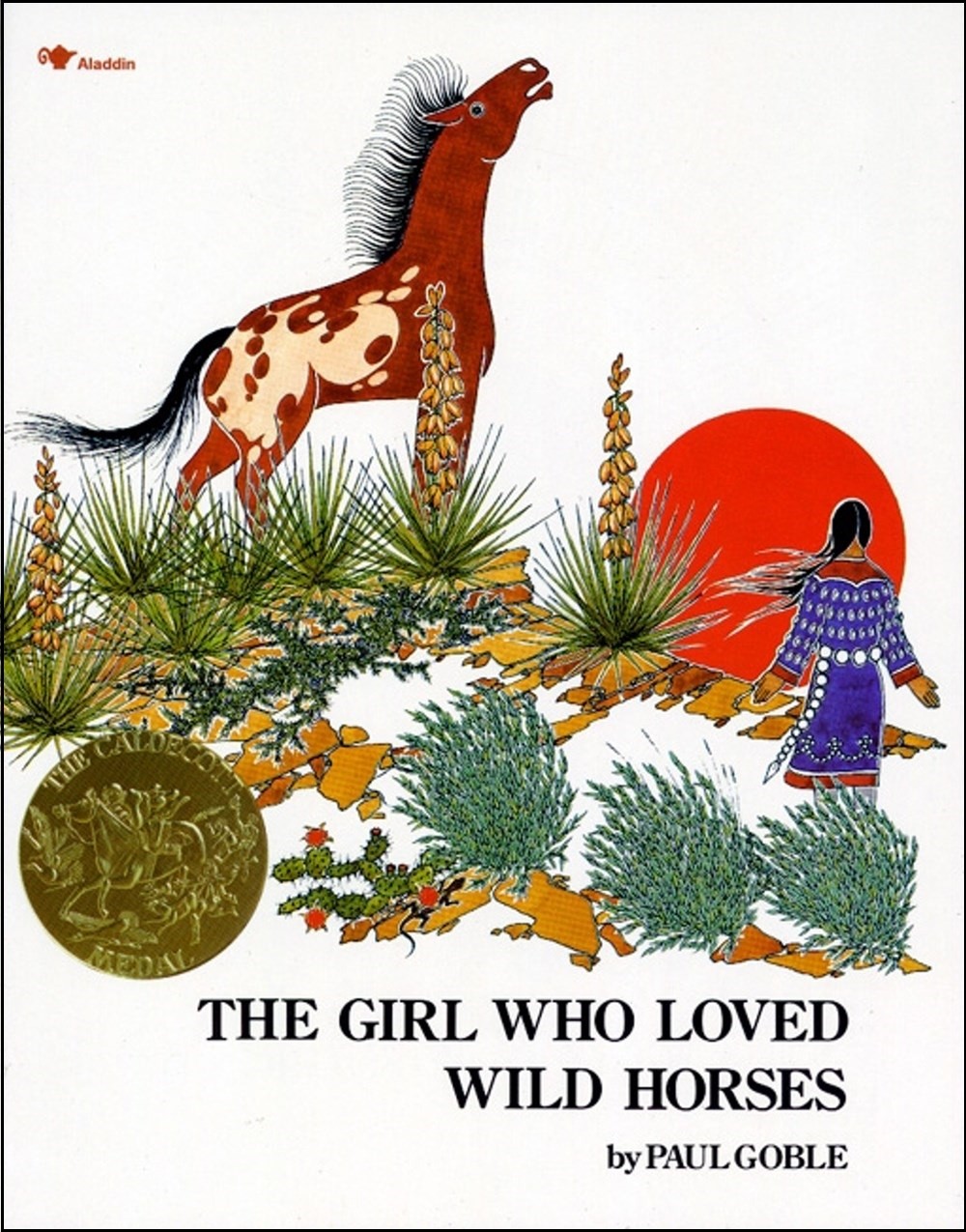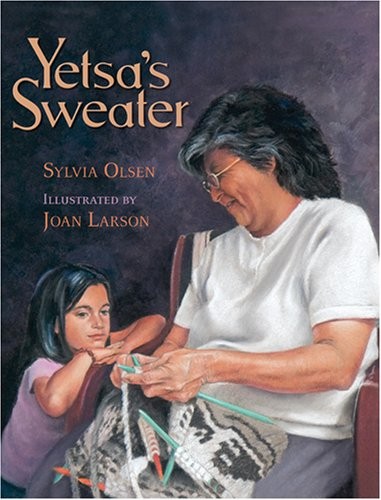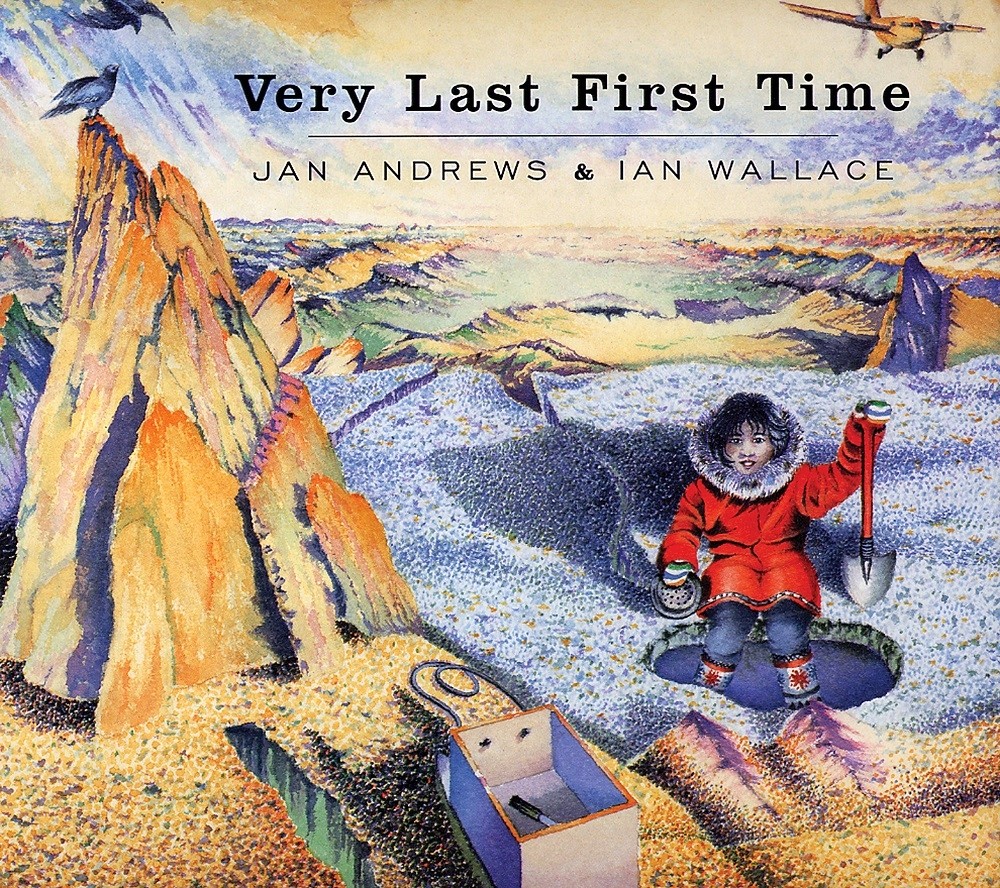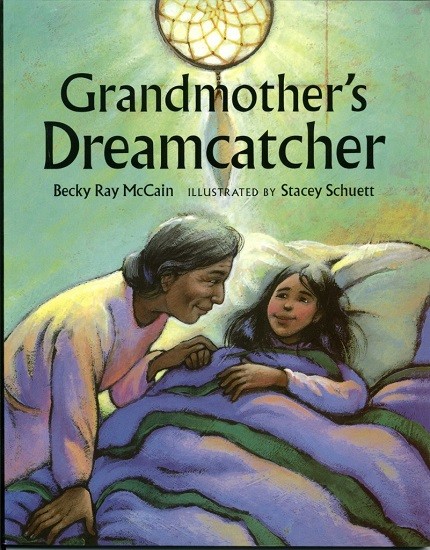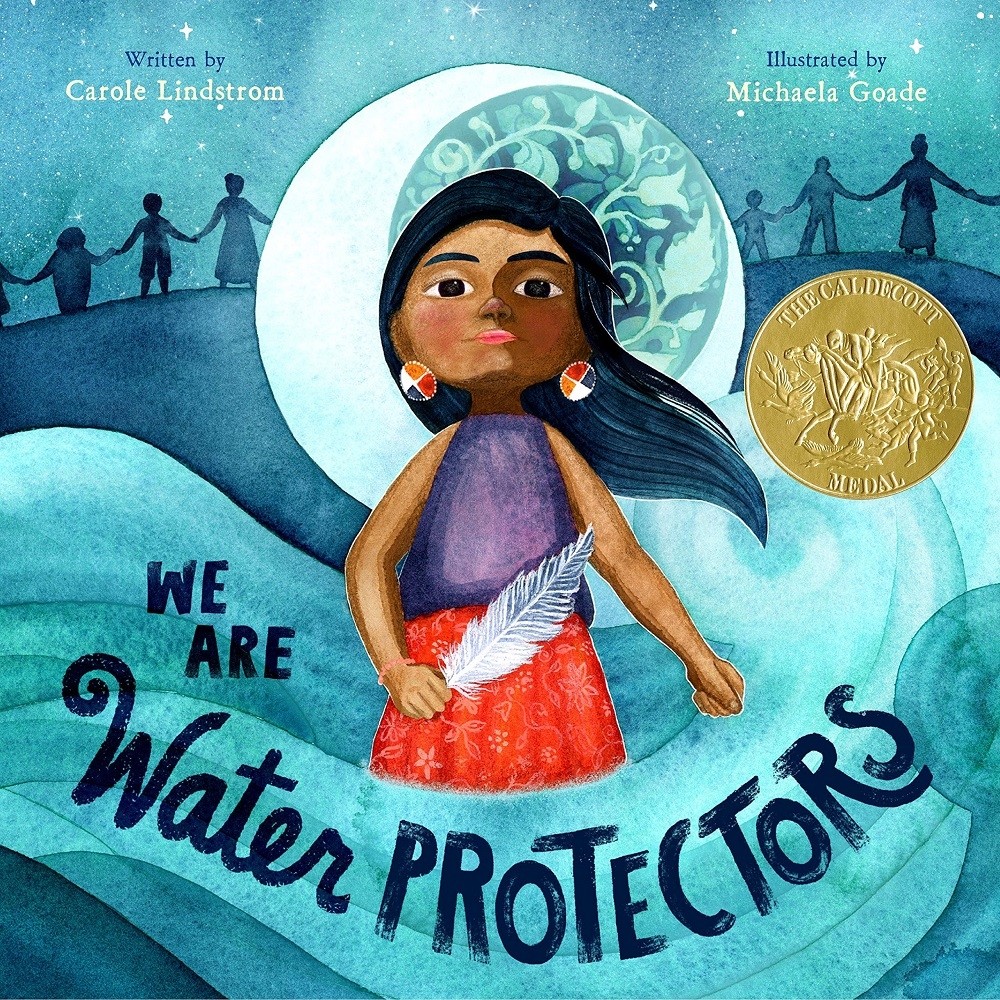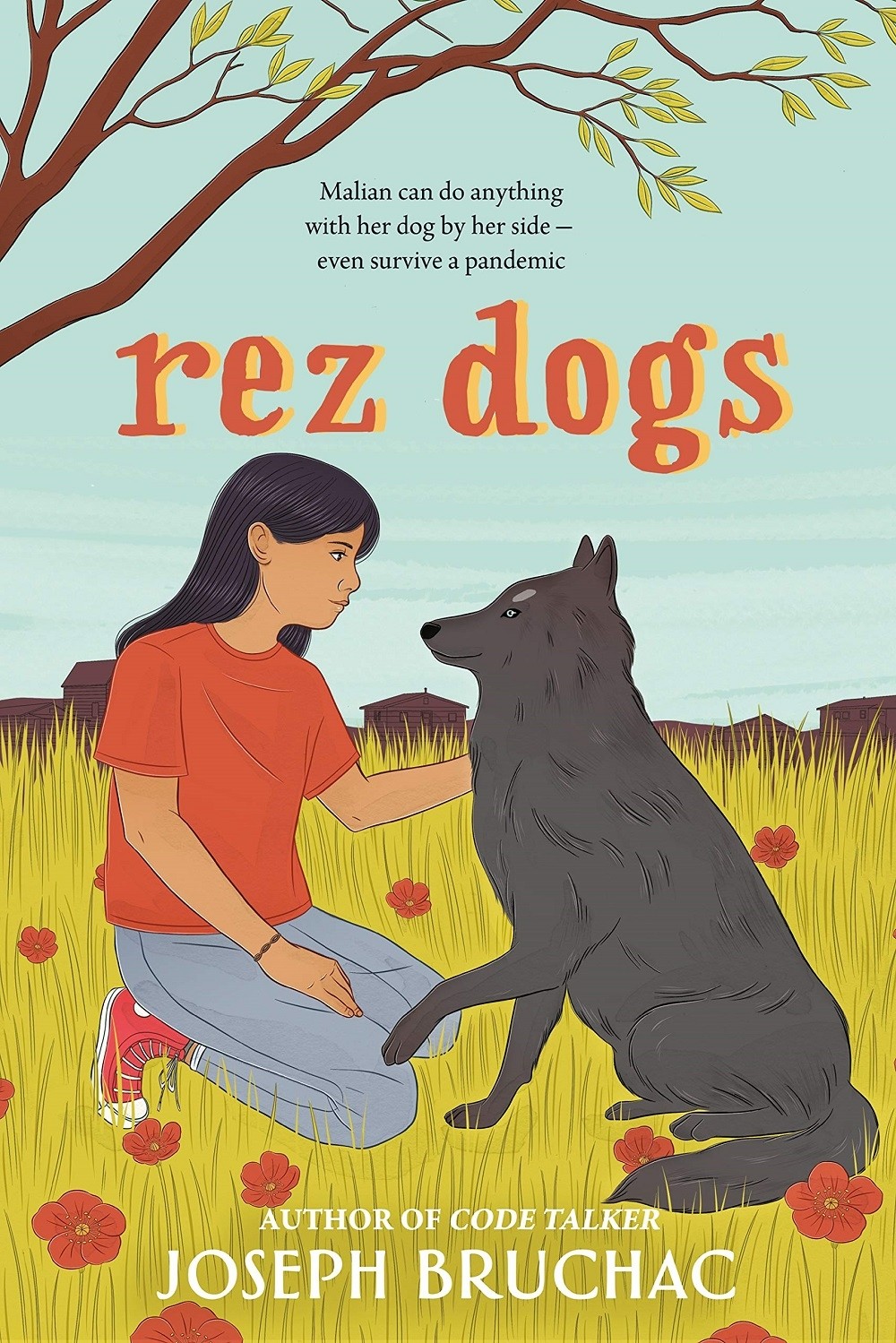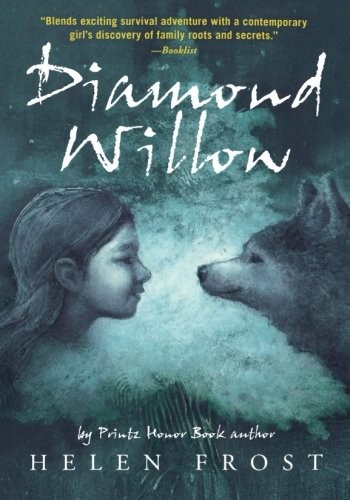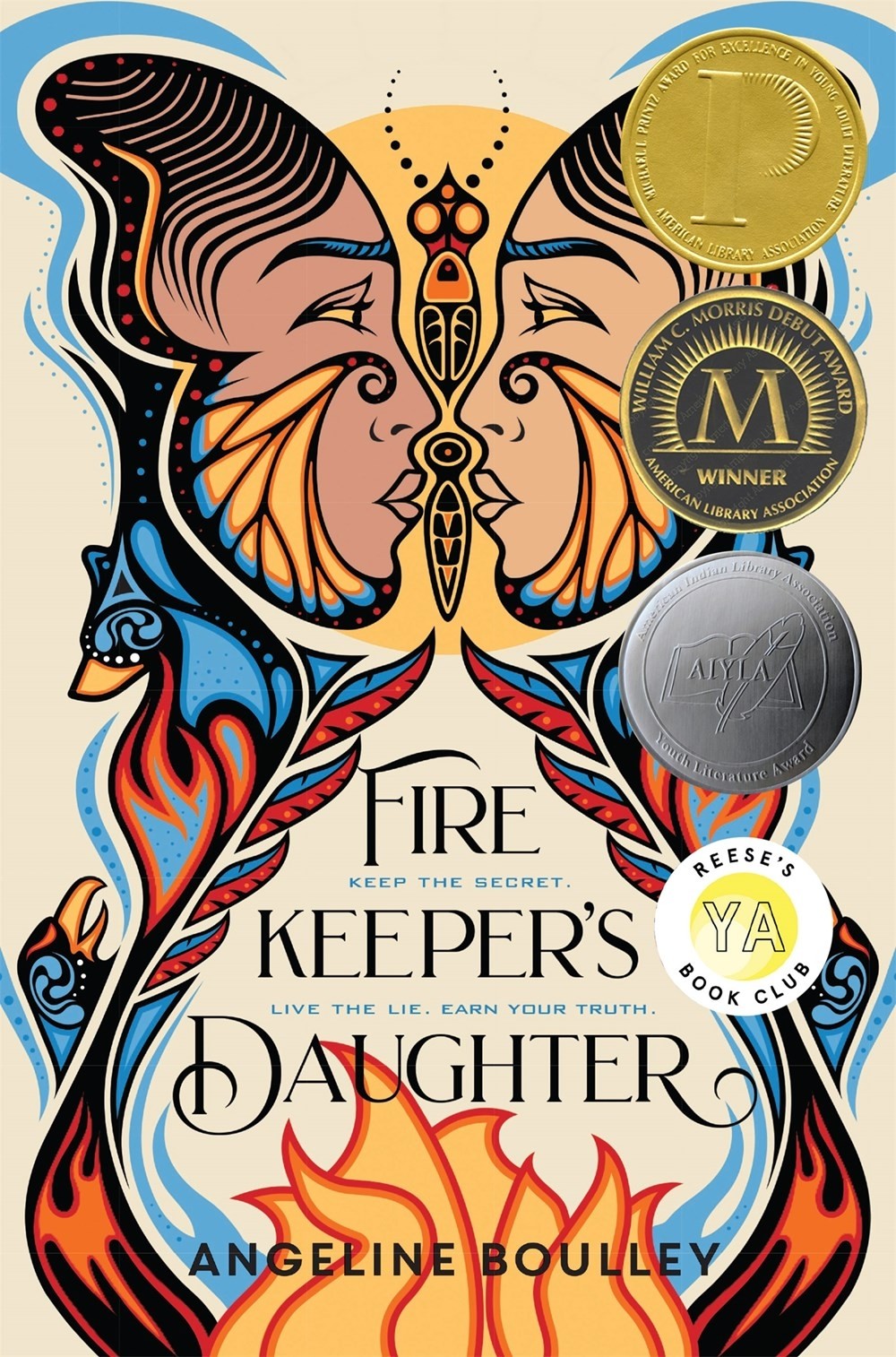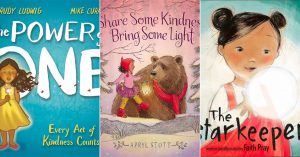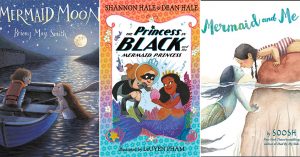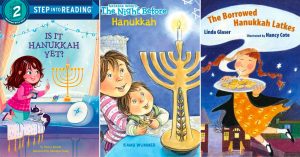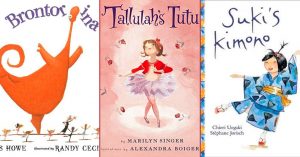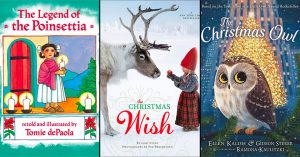When I was a little girl I was taught that there were no Indians. The only time I ever saw Indians was when we visited the stupid natural history museum and they were dead and stuffed like the dinosaurs.... [When Sesame Street] called me up and said that they wanted me to recite the alphabet like everybody else does, and count from one to ten....I said that I wasn’t interested in doing that, but I asked if they had ever done any Native American programming.... I was doing essentially the same thing that I was doing all along, in trying to raise consciousness and spotlight Native America, because it’s fascinating and interesting.” — Buffy Saint-Marie, Canadian-American Cree songwriter, educator, and social activist, in an interview with Confessions of a Pop Culture Addict, June 2009
Since Buffy Sainte-Marie’s episodes of Sesame Street aired in 1975, representation of Native American and Indigenous Peoples in media has significantly improved, especially in recent years. The Cooperative Children’s Book Center, which tracks representation in children's books, found that while only 0.6% of children's book featured Native American or Indigenous characters in 2012, that number increased to over 2% in 2022, a percentage akin to the current day Native American population in the United States.
Fortunately, among these titles, there are numerous great books available featuring Native American and Indigenous Canadian Mighty Girls! November is Native American Heritage Month in the United States, during which time we recognize the contributions and cultures of the Indigenous Peoples of North America.
To celebrate this heritage month, we’ve put together a selection of wonderful books starring Native American and Indigenous characters to share with your children. Whether reading a great piece of historical fiction, a fascinating biography, or a story that features modern Native American girls in their day-to-day lives, they’ll love these stories. And who knows? You might just learn a thing or two yourself!
Famous and Forgotten Names: Biographies
It’s critical to share stories not just of general history and culture, but of individuals: the names and faces of those who blazed the trails for so many people today. These biographies of Native American women are sure to inspire young readers.
I Am Sacagawea
I Am Sacagawea
When Sacagawea left with Lewis and Clark on their mission to explore the West, from the Mississippi River to the Pacific Ocean, nobody thought a woman — particularly a Native American woman like her — could contribute much. But as a translator, Sacagawea was able to help the expedition communicate with the tribes they met on their travels, and as a guide, she ensured they found their way. Her quick thinking even saved critical supplies that got washed off their canoes — while the men on the expedition were busy panicking. This new entry in the Ordinary People Change the World biography series captures Sacagawea's determination and courage; it's an excellent way to introduce kids to this literal trailblazer.
What Your Ribbon Skirt Means to Me: Deb Haaland's Historic Inauguration
What Your Ribbon Skirt Means to Me: Deb Haaland's Historic Inauguration
Pia spends every day after school at the Indigenous community center near her home — but today is extra special. It's March 18, 2021, and Deb Haaland is about to be inaugurated as Secretary of the Interior — the first Native American ever to serve as a cabinet secretary. Better yet, when Auntie Autumn gathers the kids around the TV to watch the ceremony, they see that Haaland is on TV wearing a traditional ribbon skirt! After the inauguration is over, the children join their parents and the Elder to talk about their own regalia, traditions, and culture. What does a ribbon skirt mean? To a girl who loves her Indigenous people, it means the world. This picture book is a celebration of Deb Haaland's remarkable career, and of the vibrant Native American communities all across the country.
Sharice’s Big Voice: A Native Kid Becomes a Congresswoman
Sharice’s Big Voice: A Native Kid Becomes a Congresswoman
When Sharice Davids was a girl, there weren't many women in Congress — and there weren't many Native Americans there, either. But she grew up loving to talk, proud of her identity as part of the Ho-Chunk nation, and determined to find a path to walk that was all her own. When she finally decided to run, there were plenty of people who thought a woman like her couldn't represent Kansas... but there were plenty more people who did! In this inspiring autobiographical picture book, Davids, one of the first Native American women elected to Congress and the first LGBTQ congressperson to represent Kansas, tells her story. With vivid illustrations by Joshua Mangeshig Pawis-Steckley, an Ojibwe Woodland artist, this book is a reminder that a child's "big voice" can become the voice that fights for change.
Autumn Peltier, Water Warrior
Autumn Peltier, Water Warrior
The Anishinaabe believein "looking seven generations into the future" when they make decisions — especially when it comes to protecting nibi, the Anishinaabe word for water. In this stunning picture book, water itself speaks about two courageous activists. First, there was Josephine Mandamin — known as Grandma Josephine — who trekked the Great Lakes with a copper water pail. Then, there was her great-niece, Autumn Peltier, who raised her voice in new ways, leading protests, speaking up on social media, and bringing petitions to the Canadian Parliament. With a forward from Peltier herself, and end notes that include more details about both women and tips for how readers can work to protect water, this is a celebration of a precious resource and of the women who fight to keep it safe.
The First Woman Cherokee Chief: Wilma Pearl Mankiller
The First Woman Cherokee Chief: Wilma Pearl Mankiller
Before Europeans came to North America, Cherokee leadership was made up of both men and women — but English colonists insisted that men should be the only ones allowed to lead, and eventually, generations of Cherokee came to believe that too. Then Wilma Pearl Mankiller stepped in! She believed that the best person should lead the tribe, and that they needed strong leadership to tackle the injustices she saw. Drawing on the concept of gaduji — everyone helping each other — she brought her people together, and in 1985, she became the first woman Principal Chief of the Cherokee Nation. This Level 3 biography from the Step Into Reading series, which features both spot illustrations and photographs, is a compelling introduction to a trailblazing leader.
Wilma's Way Home: The Life of Wilma Mankiller
Wilma's Way Home: The Life of Wilma Mankiller
Wilma Mankiller grew up "dirt poor" in Oklahoma, but her Cherokee community practiced Gadugi, helping each other, so there was always support nearby. But when the federal government moved her family to California in 1956, they lost their sense of community. Mankiller eventually found the Indian Center in San Francisco, where she realized how important her tribe was — and that she wanted to fight for what they needed. Mankiller became an activist and a leader, overcoming resistance to female leadership and a life-threatening accident to become the first female chief of the Cherokee Nation. Inspiring and eye-opening, this book from the Big Words series will introduce kids to a groundbreaking Native American woman who transformed her people.
Pocahontas: An American Princess
Pocahontas: An American Princess
Pocahontas is famous for saving the life of Captain John Smith, the man she loved — at least that's what legend tells us. This level 4 Penguin Young Readers book provides a more nuanced and historically accurate telling of her life. The book emphasizes Pocahontas' true age when she first met John Smith and his fellow Europeans, as well as her playful nature. By showing her desire to forge a peaceful relationship between the Powhatan and the settlers, her true colors as an intelligent, heroic young woman shine through.
She Persisted: Maria Tallchief
She Persisted: Maria Tallchief
When Maria Tallchief grew up, she loved to dance, and she discovered a gift for ballet early on. But as she rose through the ranks towards becoming a professional dancer, people told her she should change her name: most famous dancers were Russian, and Tallchief might have an easier career as "Tallchieva." But Tallchief refused: she was proud of her Osage roots. She would go on to become America's first prima ballerina, with many famous ballet roles created just for her! Her influence on American dance is still strong to this day. This book from the She Persisted chapter book series — inspired by Chelsea Clinton's best-selling picture book — is a celebration of individuality, perseverance, and a love of dance.
Sacajawea: Her True Story
Sacajawea: Her True Story
More than 200 years ago, explorers went on a journey to the Pacific Ocean — and with the help of a young American Indian girl, the trip was a success. Her name was Sacajawea, and her story is one of courage and resilience. This level 4 Penguin Young Readers book focuses on the Lewis and Clark mission, but also touches on her early life as a captive and addresses the conflicting reports about how she died. Full of warm, attractive illustrations, this dignified and sympathetic telling is sure to inspire young readers.
Red Bird Sings: The Story of Zitkala-Sa, Native American Author, Musician, and Activist
Red Bird Sings: The Story of Zitkala-Sa, Native American Author, Musician, and Activist
One of the most important Native American reformers of the early 20th century was Gertrude Simmons, also known by her Yankton Sioux name, Zitkala-Sa. She found strength during her time at a residential school from an unexpected source: music classes. The story of how Zitkala-Sa learned new ways to sing — both through playing the violin and the piano and through her many writings and speeches in support of preserving Native American rights and culture — is sure to inspire. Older readers can learn more in Doreen Rappaport’s The Flight of Red Bird: The Life of Zitkala-Sa (age 10 and up.)
Native Women of Courage
Native Women of Courage
This wide-ranging book features ten Native American women, both past and present, who have broken new ground and raised awareness about North American indigenous cultures. Profiles include Wilma Mankiller, the first woman Chief of the Cherokee Nation; Susan Aglukark, Inuit singer/songwriter; Winona LaDuke, the Anishinaabeg author, environmentalist, and vice presidential candidate; and Susan Rochon-Burnett, the Metis woman who became the first Canadian woman granted an FM broadcast license. Their stories remind young readers that Native American and First Nations Canadian women have contributed to modern culture in many, often unexpected, ways.
Who Is Maria Tallchief?
Who Is Maria Tallchief?
This engaging and accessible biography tells the story of the Osage girl who moved beyond culture and tradition to become America’s first major prima ballerina. Although Osage tradition does not allow girls and women to dance, Tallchief showed gifts for dance and music at an early age. After choosing to focus on ballet, she attracted the attention of choreographer George Balanchine, and with the help of Balanchine and her supportive family, she would eventually reach the top of her art form. In fact, Balanchine’s famous choreography for The Firebird was created for her. Tallchief's story is also told in the lovely picture book for ages 4 to 9, Tallchief: America's Prima Ballerina.
Pocahontas
Pocahontas
One name that jumps to mind when thinking of Native American history is Pocahontas, but her real story is often overshadowed by the historically inaccurate Disney animated film. Bruchac, an acclaimed Abenaki author, draws on John Smith’s journals for his depiction of the 11-year-old Powhatan chief’s daughter. Alternating chapters portray the same incidents from the points of view of Pocahontas and Smith; the sections in Pocahontas’ voice begin with stories in the tradition of Algonquin and Powhatan culture. Historically accurate (to the point where it is often categorized as non-fiction) and vividly told, this true story of Pocahontas is far more interesting than the myths that have grown around her.
Sacajawea
Sacajawea
In this book about Lewis and Clark's Shoshone guide, Sacajawea's story is told in chapters alternating with William Clark’s perspective. As in Pocahontas, Sacajawea’s chapters begin with traditional tales, either from the Shoshone (during her earlier life) or from the tribes she, Lewis, and Clark encounter along their journey. Bruchac again relied on many contemporary sources to create this vivid, accurate picture of an often mysterious young woman. His telling also touches on the many cultural nuances, both among the Shoshone and the other tribes Lewis and Clark met, that frequently get missed or oversimplified in other books.
Marooned In The Arctic: The True Story of Ada Blackjack, the "Female Robinson Crusoe"
Marooned In The Arctic: The True Story of Ada Blackjack, the "Female Robinson Crusoe"
In 1921, four white men and one Inuit woman traveled to Wrangel Island in northern Siberia. The men's goal was to claim the island for Great Britain...but the woman, Ada Blackjack, just wanted to earn money to care for her sick son. Conditions quickly became dire, and after three men left and the remaining man died, Blackjack spent nearly two years alone on the island, trapping foxes, catching seals, and avoiding polar bears. This book from the Women of Action series tells Blackjack's story, complete with historical photos and details about aspect of Inuit culture. Adults interested in learning more about Blackjack can check out Ada Blackjack: A True Story of Survival in the Arctic.
Fighter in Velvet Gloves: Alaska Civil Rights Hero Elizabeth Peratrovich
Fighter in Velvet Gloves: Alaska Civil Rights Hero Elizabeth Peratrovich
Elizabeth Peratrovich was proud of her Tlingit heritage, but not everyone in Alaska felt the same way. She was infuriated that stores felt free to post signs reading, "No Natives or Dogs Allowed," and she was determined to fight for change. Peratrovich would spend years working for equality before a powerful 1945 speech about her experiences as a second-class citizen changed minds in the Alaska Territorial Legislative Session and led to the passing of the Alaska Anti-Discrimination Act — America's first civil rights legislation. Author Annie Boochever's detailed research, including interviews with Peratrovich's eldest son, comes together in this empowering look at the life of a little-known fighter for justice.
#NotYourPrincess: Voices of Native American Women
#NotYourPrincess: Voices of Native American Women
Too many people still hold the stereotype of the docile tribal "princess" — but Native American women deserve to have their voices heard. In this powerful collection, editors Lisa Charleyboy and Mary Beth Leatherdale collect stories from a wide variety of indigenous perspectives, capturing both the challenges that they face — like reclaiming Indigenous rights and overcoming the epidemic of violence against Native American women — and their passion and power to change the world. This vital addition to the literature celebrates Native American identities and the determination of those who refuse to let themselves be defined by others.
Beyond the History Books: Historical Fiction
As Buffy Sainte-Marie says in her quote at the start of this blog, history books rarely do justice to the life and culture of Indigenous Peoples, before or after colonization from Europe. These books bring a sense of immediacy to the dry facts and figures of textbooks, and invite children and teens to imagine daily life within these diverse and fascinating cultures.
At the Mountain's Base
At the Mountain's Base
At the base of a mountain, under a hickory tree, a cabin holds a Cherokee family... except for one person. She is a pilot, flying for the military far away. Her family at home worries about her, but they draw strength from their traditions. The pilot does the same, praying for peace that will let her go home to the cabin at the mountain's base where her family will welcome her with open arms. Inspired by Native American service members like WWII pilot Ola Mildred "Millie" Rexroat — and with an author's note that reminds readers that Native women have served in the U.S. Armed Forces "at proportionately higher rates than all other Active Duty, Reserve, and National Guard Servicemembers," this is a tribute to how the bonds of family can sustain us through almost any trial.
Buffalo Bird Girl
Buffalo Bird Girl
This fascinating picture-book biography of the Hidatsa woman Buffalo Bird Woman, who was born around 1839, depicts life in a Hidatsa village. Nelson used the life story of Buffalo Bird Woman, as transcribed in the early 20th century, to capture the spirit of what she was like as a child. However, this book also celebrates her now-lost way of life: since the Hidatsa relied more on agriculture than on game, this story provides a contrast to the stereotypical image of woodland hunters and their tribal life.
Crossing Bok Chitto: A Choctaw Tale of Friendship and Freedom
Crossing Bok Chitto: A Choctaw Tale of Friendship and Freedom
Since both African Americans and Native Americans faced racial discrimination, there were occasions when they worked together to avoid persecution or violence. In Mississippi in the 1800s, the Bok Chitto river marked the divide between Choctaw territory and the plantations of white settlers. When Martha, a Choctaw girl, crosses the river, she befriends the slaves on a nearby plantation. When one slave family learns that their mother is going to be sold, Martha knows just what to do: get the whole family across the river to Choctaw lands, where they can be free. This gripping story, written by an award-winning Choctaw storyteller, is perfect for reading aloud.
Soft Rain: A Story of the Cherokee Trail of Tears
Soft Rain: A Story of the Cherokee Trail of Tears
9-year-old Soft Rain refuses to believe the letter her teacher reads saying that all Cherokee people will have to leave their homes to go to "the land of darkness" in the west. Her family has just planted corn — surely they can't go now? To her shock, though, soldiers soon arrive and send her and her mother to walk the Trail of Tears, leaving the rest of her family behind. Soft Rain knows enough English to understand how difficult the journey will be, and soon she sees tragedy first hand. Even if she can ever reunite with the rest of her family, Soft Rain knows that nothing will be the same again. This book provides an excellent introduction to the painful realities of the Trail of Tears.
I Am Not A Number
I Am Not A Number
When the Canadian government removes Irene and her siblings from their home on Nipissing First Nation, the children are forced to attend a boarding school miles away. There, Irene's hair is cut and she is told that names are not allowed and that instead, she is number 759. But Irene refuses to give up everything that she is: she knows that she will always be Irene. And when she and her siblings return home for the summer, her family is resolved: they will not return to school, no matter what. Based on author Jenny Kay Dupuis' grandmother's experience, this powerful picture book for older readers is a difficult but important read; back matter includes more detail about the residential schooling system and about the Truth and Reconciliation Report of 2015.
Mary and the Trail of Tears
A Cherokee Removal Survival Story (Girls Survive)
Mary and the Trail of Tears
A Cherokee Removal Survival Story (Girls Survive)
12-year-old Mary and her family are Cherokee, and they've lived in Georgia for her whole life — but that's about to change. In May 1838, U.S. soldiers arrive and force them out, telling them they'll be directed to a new Cherokee nation in Indian Territory. Mary's father is separate from her family, and they face violence, disease, imprisonment, and more, but she is determined to help her family and friends survive to make it to someplace they might be able to call home again. This novel from the Girls Survive series explores the tragedy of forced removals following the Indian Removal Act of 1830 through the eyes of a child just like them.
I Can Make This Promise
I Can Make This Promise
12-year-old Edie knows that her mother was Native American and that she was adopted by a white couple, but she knows nothing about her heritage. Then she and her friends discover a box in the attic full of letters and pictures from Edith Graham, a Suquamish and Duwamish aspiring actor from the 1970s — a woman who looks a lot like Edie. Edie feels like her parents have been lying to her, and as she struggles to learn more about her identity she also learns harsh truths about how Native Americans have been treated, including the misrepresentation of Native Americans in film and family separations. Meanwhile, her friendships are straining under the changes of adolescence, too. Debut author Christine Day, who is Upper Skagit, drew on her mother's history as a Native American adoptee to create this enlightening and powerful novel that explores discrimination, adoption, and cultural identity.
Fatty Legs: A True Story
Fatty Legs: A True Story
In the late 19th and early 20th century, residential schools were formed in the US and Canada to "assimilate" children — what Canada’s Assembly of First Nations has called “killing the Indian in the child.” Margaret Pokiak-Fenton and her daughter-in-law, Christy Jordan-Fenton, share the story of her residential school experience in the 1940s in this book. Young Olemaun begs to attend a residential school so that she can learn to read, but once she’s there, a nun nicknamed the Raven makes it her goal to break Olemaun’s spirit, renaming her Margaret and forcing her to wear the bright red stockings that lead to the nickname in the book's title. Determined Olemaun not only holds up against the Raven’s nasty treatment, but even manages to gain the knowledge she desperately wants. Parents of younger readers can share Olemaun's inspiring story with kids age 4 to 8 with the picture book When I Was Eight.
A Stranger At Home: A True Story
A Stranger At Home: A True Story
In the sequel to Fatty Legs, Margaret is excited to return home after two years at the hated school — until her mother takes one look at her and screams, “Not my girl!” Margaret has forgotten her family’s language, and even gets sick trying to eat her community’s traditional food. But the stubbornness that saw her through the Raven’s mistreatment comes to her aid again, as she relearns how to speak and live in her Inuvialuit home. One of the rare children’s books to tackle life after residential schooling, this book also portrays Margaret’s optimism and determination, as well as the valuable lessons she learns about being true to her heritage and herself. A picture book adaptation of the story, Not My Girl, allows parents and educators to share this story with kids aged 4 to 8.
The Ugly One
The Ugly One
Micay has a deep scar that runs from her right eye to her lip; as long as she can remember, it's disfigured her face. The children of her Incan village torment her, while the adults ignore her. But when a stranger passing through on his way to Machu Picchu gives her a baby macaw parrot, her life is forever changed. Perhaps Micay's destiny is more than being the Ugly One. In this vivid telling, Ellis adeptly introduces elements of the Incan Empire's culture and history through Micay's healing lessons and her Uncle Turu's stories. Most importantly, though, this book conveys a timeless message: beauty's true nature is about more than the body.
Blue Birds
Blue Birds
It was a long journey from England to the New World for Alis' family, but they believe they will find a better life on new shores. However, the settlers have found themselves at odds with the local Roanoke tribe, and tensions are rising. In the midst of the conflict, Alis meets and, despite the long odds, befriends a Roanoke girl named Kimi, and the pair becomes as close as sisters. But when the fragile peace between the groups starts to fall apart, Alis will face difficult choices. Inspired by the story of the Lost Colony of Roanoke, this novel in verse tells the story from both girls' perspectives, with their voices coming together as their friendship grows. It's a unique work of historical fiction that will give you plenty to discuss after it's done.
The Birchbark House
The Birchbark House
This book and its sequels, The Game of Silence and The Porcupine Year, tell the story of an Ojibwa family in the 19th century. Omakayas, who was adopted as an infant after being the sole survivor of a smallpox epidemic in her family’s village, is wise for her years and yet still struggles with sibling conflict and the harsh realities of life and death in her time. Erdrich, who is a member of the Turtle Mountain Band of Ojibwa, researched the daily life of Ojibwa villages in depth to write this historically accurate and deeply moving series. The series also provides an excellent counterpoint to the depictions of Native Americans in Laura Ingalls Wilder's books, making it an excellent option for educators looking to broaden the picture in a unit on frontier history.
Morning Girl
Morning Girl
Morning Girl and her brother, Star Boy, are growing up in a peaceful, tropical world, striking the balance between providing for themselves and preserving the natural world. But while the setting is unique, his characters also wrestle with universal issues, like finding your own self-identity and dealing with annoying but beloved family members. The epilogue provides a dramatic reveal: Morning Girl lives in the Bahamas in 1492, and the puzzling visitors of the book are Columbus and his fellow voyagers. This book provides a glimpse at the life of indigenous peoples before European contact.
The Star That Always Stays
The Star That Always Stays
It's 1914, and Norvia has a lot to adjust to. She grew up near Lake Michigan, where Grand-père told her stories that made her proud of her Ojibwe heritage. But now, Norvia's parents are divorced; her mother tells her to pretend she's not Native at all, even to her new stepfather; and she's adjusting to life in a big city with movies, soda shops, and automobiles. Norvia and her siblings want to have the best year ever, and Norvia draws on inspiration from her favorite novels, like Anne of Green Gables and Little Women, to navigate all the changes around her — including the threat of a world war. Inspired by author Anna Rose Johnson’s family history, this is a sensitive coming of age story about identity, prejudice, and confidence in your own skin.
Tales of Long Ago: Native Women in Myth and Legend
Like most cultures in the world, Native American cultures are full of myths and legends that celebrate clever girls and wise women! These retellings of Native American folk tales feature girls and women and how they have changed the world. From determined young horse lovers to fiery goddesses, their power is undeniable.
I Sang You Down from the Stars
I Sang You Down from the Stars
"I loved you before I met you./ Before I held you in my arms,/ I sang you down from the stars." Drawing from the Inniniwak Nation's traditional belief that babies choose their parents, this gentle story follows a mother as she prepares the sacred bundle that will bring a baby to her family. Each item — a feather, cedar, sage, a river stone — offers gifts to the child: strength, family, and a whole community. And the baby will bring its own gifts to the mother, including the slow and magical growth of love. Indigenous creators Tasha Spillett-Sumner and Caldecott Medalist Michaela Goade have created a resonant story about parenthood that will speak to both Native and non-Native parents alike.
Berry Magic
Berry Magic
Long ago, the only berries to collect on the tundra were hard, tasteless crowberries. So young Anana decides to try a spell. "Atsa-ii-yaa, Atsa-ii-yaa, Atsaukina!" — Berry, berry, be a berry! — she sings, transforming four dolls into little girls that run across the tundra creating patches of delicious blueberries, cranberries, salmonberries, and raspberries. Now, there will be unexpected treats for the Fall Festival and the special agutak ice cream! Yup'ik elder Huffmon shared an exciting and lively version of this tale for Sloat to illustrate, and the book even finishes with its own recipe for making agutak at home.
Jumping Mouse: A Native American Legend of Friendship and Sacrifice
Jumping Mouse: A Native American Legend of Friendship and Sacrifice
When this little mouse dreams of reaching the fabled High Places, Grandfather Frog gives her a gift: long legs, perfect for jumping! But as the grateful mouse sets off on her journey, she meets other creatures in need: a buffalo that can't see, and a wolf that can't smell. Jumping Mouse is happy to help them, but to do so, she must give up her own senses. Without them, can she ever reach the High Places? Fortunately, Grandfather Frog recognizes her selflessness and kindness and transforms her in a way that ensures she'll be able to soar. Striking illustrations that use photographs of ash-fired ceramic sculptures make this a fresh retelling of a classic folk tale.
The Girl Who Loved Wild Horses
The Girl Who Loved Wild Horses
"There was a girl in the village who loved horses," begins this Caldecott Medal winning book. "She spoke softly and they followed. People noticed that she understood horses in a special way." When a thunderstorm scares the horses into a stampede — carrying her off in the process — the girl finds herself in a new land, ruled over by a handsome and proud stallion. The stallion welcomes her to live with them, and the girl is happy to join them... until the day that hunters from her tribe find her and try to bring her home. But perhaps home for this girl is truly with the horses she loves. This story, assembled from multiple Plains Indians myths and legends, conveys a powerful and timeless message about individuality and following your heart.
The Legend of the Bluebonnet
The Legend of the Bluebonnet
When a great drought threatens a Comanche community, all of their drumming and pleas seem to fall on deaf ears. One of the few surviving children, She-Who-Is-Alone, has lost both her parents; all she has to remember them is her warrior doll with the blue feathers in his hair. But when the shaman declares that the Great Spirit demands a sacrifice, She-Who-Is-Alone has the courage to give up the thing she treasures most in order to protect her people. In return for her generosity, the Great Spirit gives her a gift: fields of bluebonnets to cover the hills every spring.
How the Stars Fell Into the Sky: A Navajo Legend
How the Stars Fell Into the Sky: A Navajo Legend
At the end of the first day, First Woman argued with First Man. The laws should be written in the sky, she said, so that the people would always know them. Even though First Man disagrees, First Woman takes her blanket full of jewels and begins laying them in the sky. Even the trickster Coyote offers to help, but when he becomes bored of the careful placement the job requires, will First Woman's plan ever see completion? This elegant retelling of the Navajo legend that explains the mysteries of the stars captures the sense of meaning and purpose we all feel when we gaze at the night sky.
Frog Girl
Frog Girl
When a chief's daughter spots two boys trapping frogs at a lake, she's startled when one of the overlooked frogs speaks to her! The frog takes her under the water to meet Grandmother, whose sadness over her stolen children is causing earthquakes and volcanoes that threaten the village above. The chief's daughter will need to return from the spirit world and convince her village to release the captive frogs if she wants to save her people — and Grandmother's. This original story is inspired by legends of the Pacific Northwest tribes, particularly the Haida and Tlingit; a portion of the proceeds of the book are donated to the Haida Gwaii Rediscovery program.
Here and Now: Native American Girls in Modern Life
History and important names are one thing, but recognizing the day-to-day experiences of Native American and Indigenous Canadian Mighty Girls is equally important! Instead of providing more distant role models, these stories feature characters whose lives and feelings will sound familiar to any child.
My Heart Fills With Happiness
My Heart Fills With Happiness
There are so many things that can make your heart happy — for this girl, it's moments like bannock on the stove, moccasins for dancing, and drumming with a loving relative that make her heart full! In this charming board book, children enjoy experiences that hint at a Native American heritage in a clearly contemporary setting: the bannock bakes in a modern kitchen. For all children, it's a celebration of the joys of home, but for children from Native American and First Nations Canadian families, these touches will be especially familiar and warm.
Mama, Do You Love Me?
Mama, Do You Love Me?
It's a familiar question to any parent: not just how much a child is loved, but whether you'll still love them if they get into mischief — like putting salmon in your parka and ermine in your mukluks! Fortunately, this Inuit mama is able to reassure her little girl that she will always be loved "more than the raven loves his treasure, than the dog loves his tail, than the whale loves his spout." And how long will Mama love her daughter? Why, until the puffins howl at the moon — in other words, forever! This sweet story of unconditional love is also available in an abridged board book for the littlest readers.
Yetsa's Sweater
Yetsa's Sweater
One spring day, Yetsa, her mother, and her grandmother gather together for a very special task: cleaning, carding, and spinning the sheep fleeces so they can be used in Cowichan sweaters! As the trio devotes their attention to the hard work necessary to care for the fleeces, they are drawn closer together by laughter, stories, and songs. And soon, Yetsa will have her very own sweater, as unique as she is. This story of family love also introduces a 100-year-old tradition that combines Scottish knitting and Cowichan woolworking, as well as the deeply symbolic patterns created to tell each sweater's story.
Stolen Words
Stolen Words
When a little girl comes home with a dreamcatcher she made in school, she's eager to talk to her Cree grandfather and learn more about her heritage. Her enthusiasm, though, seems to make her grandfather sad, and eventually he confesses that he has little knowledge to share: as a child, he tells her, his language was stolen from him. The girl comforts her grandfather as best she can, but the next day, she comes home with something even more special to share: a tattered paperback called Introduction to Cree. While this book is an emotional story of the damage done by the residential school system, it's also a powerful tale of a hopeful present: one in which generations work together to learn or relearn their language and culture.
SkySisters
SkySisters
Some things are more magical when you share them with a beloved sister. One winter night, two Ojibway sisters set out to see the SkySpirits dance. It’s a long walk and requires a lot of patience — especially for the younger sister, who struggles to experience the stillness rather than filling it with chatter — but in the end, the pair are rewarded with the shimmering light show they’ve traveled so far to see: the aurora borealis. The warmth of family leaps off the pages of this lyrical picture book, which captures the wonder of the Northern Lights.
Jingle Dancer
Jingle Dancer
After seeing a video of Grandmother Wolfe jingle dancing, Jenna, a Muscogee girl, wants to continue her family’s tradition at the upcoming powwow. But how can she get enough jingles for her dress? By taking a few jingles from dresses belonging to a neighbor and several of her relatives, Jenna is able to sew a dress that will jingle properly. Grandmother helps her practice, and at the powwow, with great pride, Jenna represents all four women who shared parts of their dresses and their memories with an eager young girl.
Very Last First Time
Very Last First Time
Every child can relate to the nervousness which comes with the first time you try to do something without a parent by your side! Eva’s Canadian Inuit community takes advantage of a seasonal food: mussels on the sea floor, underneath a thick sheet of ice. When the tide goes out, Eva goes beneath the ice with a candle in hand, and soon fills her pan with mussels. But when the candle goes out, Eva will have to get herself home — without her mother’s help — before the tide returns. Your Mighty Girl will be fascinated by the adventure that this girl, not so much older than she is, dares to undertake and perhaps be inspired to brave a new experience of her own.
Berry Song
Berry Song
This Tlingit grandmother and her granddaughter are off for a very special trip: gathering berries! As they travel through the countryside the grandmother knows so well, she teaches her granddaughter a harvest song: "Salmonberry, Cloudberry, Blueberry, Nagoonberry. Huckleberry, Soapberry, Strawberry, Crowberry." It's important to sing to the land, she says, so the land knows that they are grateful for its bounty. After they've gathered all they need, they return to Grandmother's kitchen where they make jams, syrups, and baked goods to share. And one day, it will be the girl who teaches someone else the berry song... Caldecott Medalist Michaela Goade tells a luminous and touching story of respect for the earth and intergenerational love in her first self-authored picture book.
Grandmother's Dreamcatcher
Grandmother's Dreamcatcher
Kimmy's life is upside down right now — her parents are hunting for a new home near her Daddy's new job, so she's staying with her Chippewa grandmother for... however long that takes. It's no wonder that she starts having bad dreams! But Grandmother knows just what to do about bad dreams, and tells Kimmy the story of the dreamcatcher. Perhaps, if they make one together, Kimmy will sleep more easily — and perhaps the extra special time with Grandmother will let Kimmy know that her family can help her through anything. This sweet story of how old traditions can help children deal with modern worries is sure to have young readers interested in building a dreamcatcher of their own.
We Are Water Protectors
We Are Water Protectors
"Water is the first medicine, Nokomis told me," this little girl remembers. It is an element that connects all of us, and all the other living creatures on our planet. So when our water is threatened, this girl takes a stand to defend it: she becomes a water protector. Ojibwe author Carole Lindstrom and Tlingit/Haida illustrator Michaela Goade were inspired by the many Indigenous-led movements to protect this precious resource for this Caldecott Medal-winning book, but they also remind readers that this issue is goes beyond a single community, country, or race: "we are all related," they point out, and if we take action, we can all be water protectors.
The Sea in Winter
The Sea in Winter
Maisie Cannon has loved dancing ballet since she was four, but a terrible injury last year has separated her from her passion — and from her dance friends. Now, her days are consumed with physical therapy, and while her blended family tries to support her, they don't seem to get how hopeless things feel or why her grades are dropping. Then, on a family roadtrip to the Olympic Peninsula, her stepfather starts teaching her about her Makah ancestors: how they came into conflict with European settlers, and how they persevered despite horrendous treatment. In the process, she also starts to understand how her mother managed to heal after her father's death in Afghanistan. This poignant novel by the author of I Can Make This Promise is a compassionate look at a girl struggling with depression whose Native American heritage helps give her the strength to find joy.
Rez Dogs
Rez Dogs
8th grader Malian loves visiting her grandparents on the Wabanaki reservation — but when COVID-19 shuts down travel in the middle of her winter visit, she finds herself living there indefinitely. She misses her parents in Boston, and the spotty internet on the rez makes it difficult for her to keep up with online classes. But she has Malsum, a "rez dog" who shows up at the family's door and becomes a close companion, and she discovers that the Wabanaki community has ways of supporting one another through crisis... even after the atrocities of the past, which included Malian's own mother being forcibly removed by social services for adoption to a white couple. Told in spare verse by the U.S.'s foremost indigenous children's author, this is a poignant tale about the power of stories, the strength of community, and what it means to be chosen by a dog.
Soldier Sister, Fly Home
Soldier Sister, Fly Home
Thirteen-year-old Tess is already struggling to figure out her identity — too white on the reservation but too Navajo at school — when her beloved older sister Gaby announces she's going to enlist and fight in the Iraq War...only weeks after Lori Piestewa, a member of their community, becomes the first Native American woman in US history to die in combat. Adding to Tess' stress is her sister's instruction to take care of Blue, a semi-wild stallion, who Tess finds unstable and scary. But perhaps caring for Blue can help Tess find peace with who she is. Additional back matter includes a pronunciation guide for Navajo terms and information about Piestewa.
Diamond Willow
Diamond Willow
12-year-old Willow is the daughter of an Anglo father and an Athabascan mother; she dreams of blending in, rather than standing out. But she also wants to be seen for who she is — particularly by her parents — so that she can start taking on adult privileges like mushing the dogs to her grandparents' house on her own. One mistake when you're on your own can have serious, even dangerous, consequences, though — something Willow learns all too well. But is Willow every completely alone, or can the people who make up her family's history support her in her greatest need? This story, told in diamond-shaped poems inspired by the shapes on polished diamond willow sticks, conveys powerful lessons about coming of age; readers will also enjoy finding the secret messages in bold text in each verse.
The Talking Earth
The Talking Earth
It’s important to show how Native American culture and traditions still have value in a rapidly advancing world. Billie Wind is a Seminole girl who doesn’t see the point of talking about spirits of the land when real issues like pollution and nuclear war threaten. When she sarcastically suggests to her disapproving elders that she should go out into the Everglades until she believes in their legends, she is surprised that they agree. While there, Billie gains a new appreciation for the skills of her community, its connection to the land, and how the legends of the past can give lessons for the present and the future.
Firekeeper's Daughter
Firekeeper's Daughter
18-year-old Daunis is the child of a wealthy Fontaine mother and an Anishinaabe father — and walking between those two worlds can be challenging. She's deferred her plans to go to college while her maternal grandmother recovers from a stroke, and spends time playing hockey with her half brother and his hockey team. When Daunis witnesses a murder — one related to a dangerous new form of meth — she reluctantly agrees to go undercover for the FBI, combining her knowledge of chemistry and traditional medicine in the process. But the investigation is more concerned about punishment than preventing more victims, and soon Daunis has to decide how far she'll go to protect her community from the corruption that threatens to tear it apart. This tense thriller tackles issues of sexual assault, drug addiction, and racism, all through the eyes of a strong Ojibwe woman.
Sharing stories is a wonderful way to learn more about one another, whether as individuals or as a larger community. By reading these great books with your children, you can give them a new appreciation for the breadth and depth of Native American and Indigenous Canadian culture and history.
Additional Recommended Resources
- For more books featuring Native American and Aboriginal Mighty Girls, visit our Native / Aboriginal Fiction section in Multicultural Fiction.
- For a great children’s TV series featuring character design inspired by Native American and Indigenous Canadian peoples, check out Avatar: the Legend of Korra. This animated series, recommended for ages 9 - 15, depicts people of many races, but Korra’s race, the Water Tribe, is heavily based on Inuit people and culture.
